Find the limit using 
 = 1.
= 1.

A. 12/5
B. 15/4
C. 0
D. Does not exist
Answer: B
You might also like to view...
Find the indicated quantities for the appropriate arithmetic sequence.A man earned $3000 the first year he worked. If he received a raise of $500 at the end of each year, what was his salary during the 15th year?
A. $7000 B. None of these C. $10,500 D. $10,000
Find the first three nonzero terms of the Taylor expansion for the given function and value of a.ln x (a = 2)
A. 1 +  (x - 2) -
(x - 2) -  (x - 2) 2 + ...
(x - 2) 2 + ...
B. ln 2 +  (x - 2) -
(x - 2) -  (x - 2) 2 + ...
(x - 2) 2 + ...
C. ln 2 - (x - 2) +  (x - 2) 2 - ...
(x - 2) 2 - ...
D. (x - 2) -  (x - 2) 2 +
(x - 2) 2 +  (x - 2) 3 - ...
(x - 2) 3 - ...
Graph the function. State the amplitude, period, and phase shift.y = 5 sin x - 5 cos x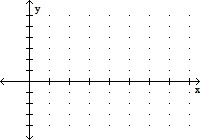 x-scale =
x-scale =  y-scale = 10
y-scale = 10
A. Amplitude 35.36, period 2?,
phase shift 
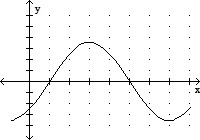
x-scale =  | y-scale = 10 |
B. Amplitude 35.36, period ?,
phase shift -

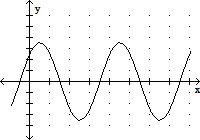
x-scale =  | y-scale = 10 |
C. Amplitude 5, period 2?,
phase shift

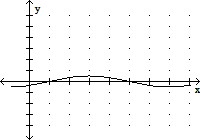
x-scale =  | y-scale = 10 |
D. Amplitude 5, period 2?,
phase shift -

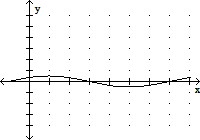
x-scale =  | y-scale = 10 |
Provide an appropriate response.When two quotients in a simplex table tie for being the smallest,
A. there is a possibility for multiple optimum solutions. B. a degenerate BFS will occur. C. the problem has an unbounded solution.